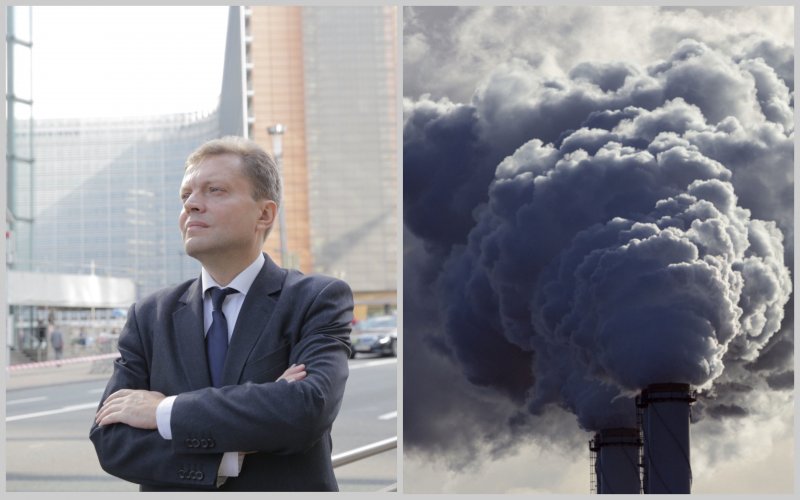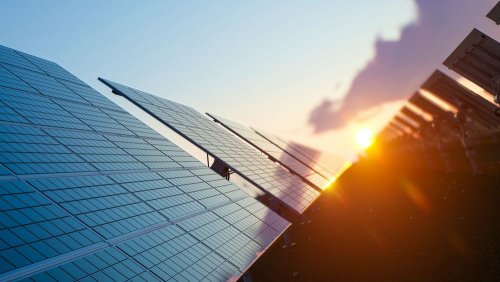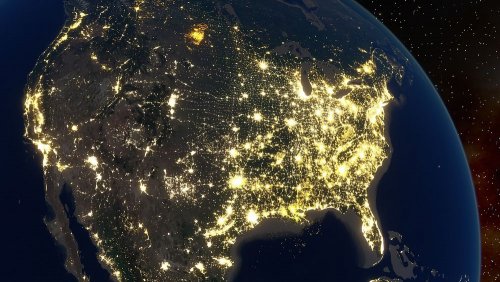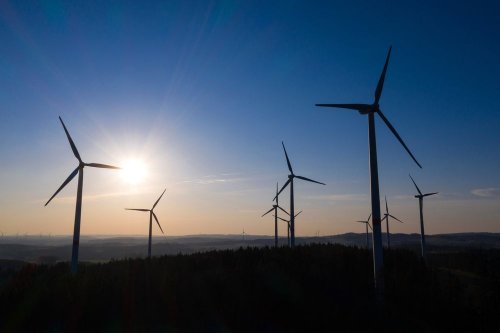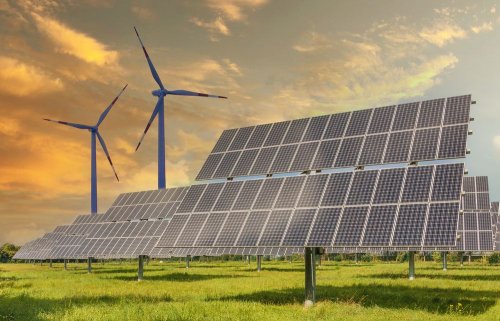Six months ago, at the Paris Climate Summit in Glasgow Ukraine has committed itself to achieving the target of reducing GHG emissions (NDC2) of 65% by 2030. This year our country is already fulfilling this ambitious goal at an accelerated pace. However, there is no reason to celebrate. After all, instead of developing renewable energy sources, our economy is decarbonizing due to the decline in electricity consumption because business stopped.
On the impact of the war on plans to decarbonise the economy and green energy in general in an interview EcoPolitics says Volodymyr Omelchenko, director of energy programs at the Razumkov Center.
— Mr. Volodymyr, in a recent publication you said that Ukraine is currently at risk of disrupting the plan to decarbonize the economy through the development of renewable energy sources. The amount of electricity generated from renewable sources has already decreased significantly (solar generation — by 40%, wind — by 70%, biogas — by 20%). So what are the consequences of the war for the green energy market?
— The war will have a serious negative effect on the industry. The main renewable energy capacities (solar, wind generation) are located in the southern and south-eastern regions of Ukraine, where active hostilities are currently taking place. Up to 40% of these facilities have already been destroyed or damaged, are in the uncontrolled territory. Investors expected to make a profit, to cover the loans they took. But now they can't do it.
Almost all investors in Ukrainian green energy are currently on the verge of bankruptcy.
In addition to the direct fighting for the industry, there is another problem: the effective demand for electricity has changed. First reason is people consume it less (by 30-40%), but also payments fell significantly (by 40-45%). Thus, the situation in green energy and energy in general has significantly deteriorated. In addition, the National Commission for Regulation of Economic Competition has decided to reduce the income from GarPok for green generation. Percentages of the green tariff have been set: for biogas — 60%, for wind energy — 16%, for solar energy — 15%. At present, the payments received by the RES sector are so meager compared to what it used to be that investors simply will not be able to cover the costs. Therefore, today they do not see a serious prospect and do not know what to do with this business.
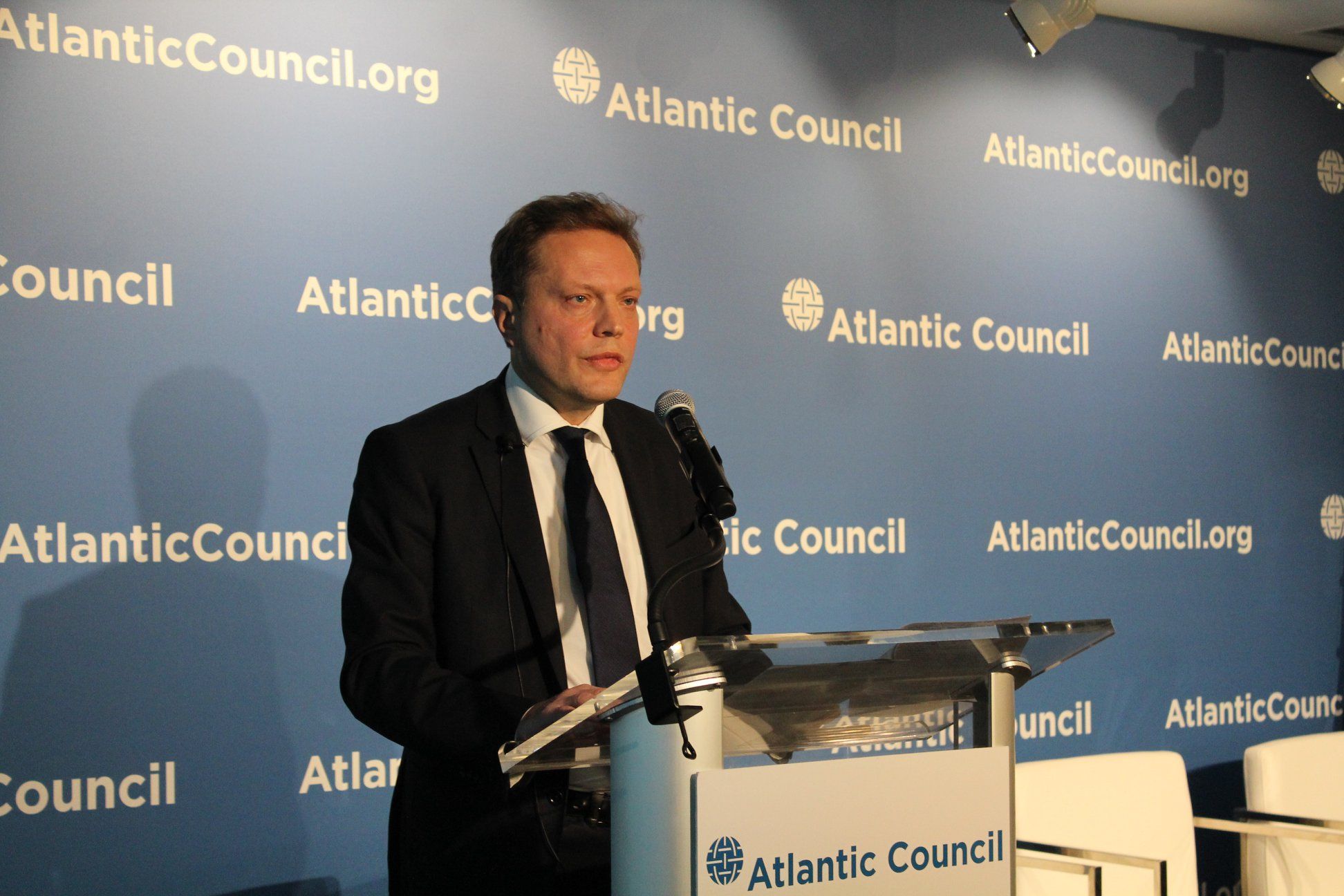
— In that case, if green energy is declining, is there a chance to implement the decarbonisation plan?
— Ukraine has made a serious commitment to NDC2 at the Glasgow summit: to reduce emissions by 65% compared to 1990.
According to my calculations, this plan will be exceeded this year. And by 2030, greenhouse gas emissions will be reduced much more than they should. It can be 70% or more.
But the reduction is not due to the fact that our economy has become more efficient, energy intensity has decreased, and RES began to develop. Quite the opposite. But due to Russia's military aggression, production fell, so emissions were reduced.
- How do you see possible ways to develop the green generation now? What awaits us in the near future if military aggression continues?
- If the military aggression continues - the whole green generation will go bankrupt. The only thing that can change the situation is foreign aid. They are already trying to create a Decarbonization Fund. Denmark has even invested in it. The redemption of these capacities by international funds and banks can save the green generation in the current conditions. Otherwise, this business, apparently, may stop, because the investor will not see the point in its development.
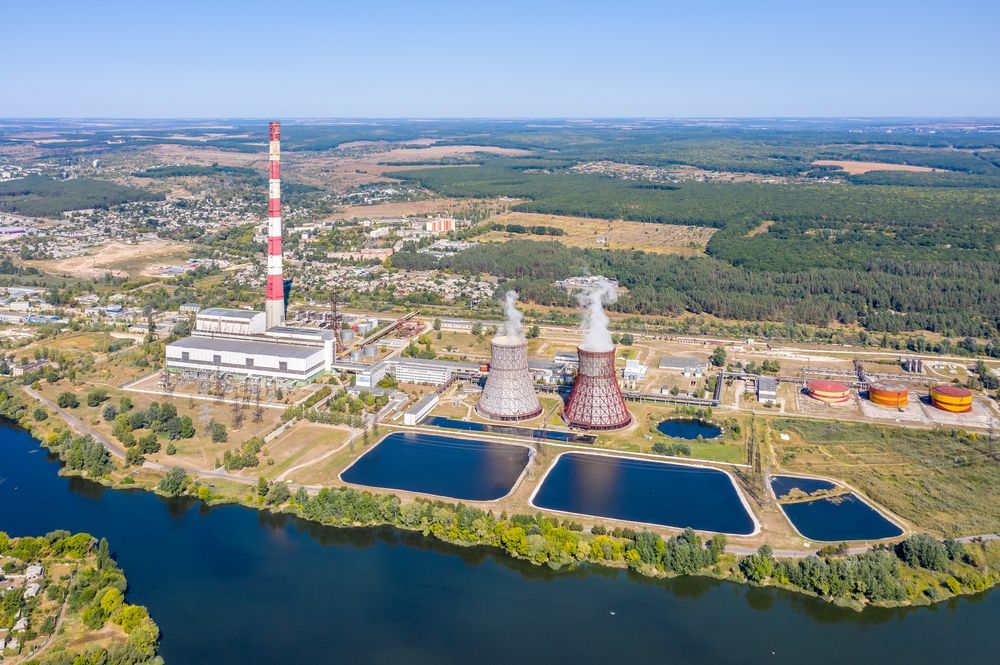
Schutterstock
— With foreign aid, the situation is clear, but which steps that the Ukrainian government can take now to minimize this negative impact?
— The Ukrainian government cannot currently support the green generation because it doesn't have the financial sourses. The funds we receive now are directed to humanitarian, social and military area. And they are still not enough. About renewable energy we see a reduction in state aid. Green tariff legislation is not enforced by the government. The state actually takes away the funds that the green generation could receive today and distributes them to Ukrenergo and Energoatom, because it believes that these companies are more important. I have some doubts about that, but now this is the policy. We do not have to expect support from the authorities. On the contrary, the government will continue to try to solve its priority problems at the expense of RES, the green tariff.
So now all hopes are that the government will be able to organize the accumulation of money in the international fund. And this fund will be able to support the green generation in such conditions. I do not see other ways today.
— Currently, we see a tendency to abandon Russian energy in both European and global markets. Is there a chance that after the war Ukraine will become a springboard for the development of renewable energy sources that can replace Russian energy, particularly in Europe?
— There can be many scenarios. One of them is the one you are talking about. When the war is over, many investors may want to invest in Ukraine. The green generation is quite attractive all over the world. Currently, 80% of all investments in energy are accounted for by it. Therefore, of course, many investors will consider this option. But for this scenario to materialize, an effective and efficient government policy is needed. It is necessary for the government to really create a better model of the market: to adhere to the commitments made by Ukraine to investors, to have some incentives to fight corruption, to have a more independent judiciary and the investor can trust it. Under such conditions, investments will really go. And if the war is over and the administration remains as it was, you should not count on investments. Therefore, in my opinion, we will have to do a lot of work to strengthen the economic bloc of the government, or we will have to change the government to a more European one. It is also important to strengthen the separation of powers, in particular the independence of the judiciary from the influence of oligarchs and the executive.
After the war we will have to change the whole economic philosophy.
— What about hydrogen energy? Before the war, we had agreements with the EU that Ukraine would eventually produce and export hydrogen to Europe. As far as hydrogen energy is concerned, can it be stored in a long box?
— During the war we must forget about it. To get green hydrogen, we need to invest in green generation. For now, there will be no investment in green energy or hydrogen. Of course, project planning can be done now, but it will be possible to implement them and attract investments only after the end of hostilities and subject to a change in the philosophy of the economic system and public administration.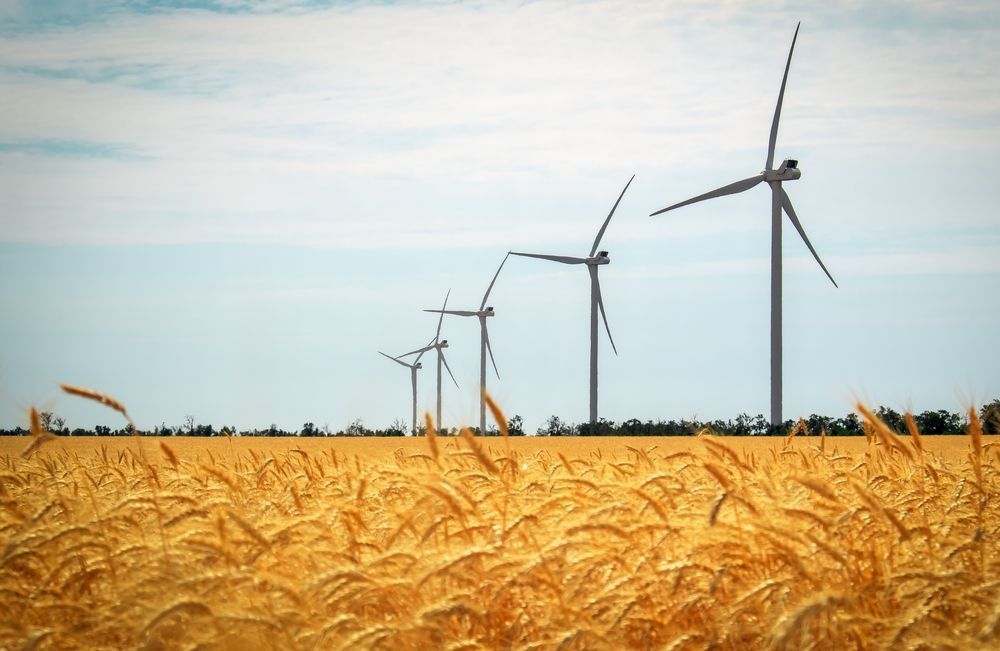
Schutterstock
— And finally, what is the current situation on the energy market of Ukraine in general? The green generation has fallen sharply, the largest in Ukraine Zaporizhzhya TPP has stopped, occupied Zaporizhzhya NPP, electricity production has become much smaller, should we now expect to fan outages or rising prices?
— Ukraine has suffered significant losses. The only thing that saves the situation now is that we have a huge drop in production, a drop in GDP, so electricity consumption has decreased by about 35%. Falling consumption is currently balancing the energy system. But when the economy begins to recover and grow in the post-war period, without Zaporizhzhya NPPs and thermal power plants, we will have a very large shortage of electricity.
It is difficult to predict now, but if the decline in production and consumption remains high in the winter, there should be no significant problems with electricity shortages in general.
There will be problems only with some cities, whose infrastructure has suffered the most from aggression. Nevertheless, I hope that by the winter it will still be possible to liberate the occupied territories and return the Zaporizhzhya NPP and TPP. Then the problems of capacity will be clearly resolved, however, it is time to resolve such pressing issues as the commercial compatibility of Ukraine's electricity market with the relevant EU market and green energy exports.

